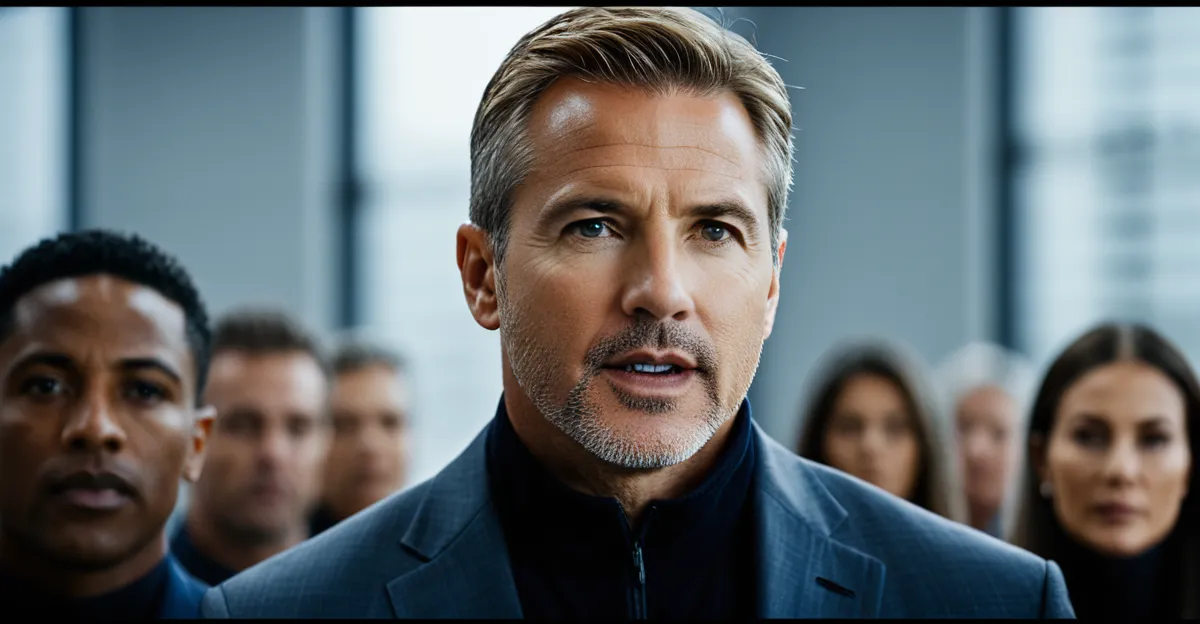Executive coach training programs offer more than certification—they transform how you lead and influence. These accredited courses blend practical skills with personal growth, equipping professionals to guide others effectively. Whether you’re aiming to advance your career or support organisational development, this training builds confidence and delivers tools to foster meaningful change in diverse environments worldwide.
Executive Coach Training: Key Requirements, Course Content, and Accredited Providers
Anyone pursuing a career in leadership development will encounter Executive Coach Training as a vital stepping stone. The executive coaching certification process demands meeting strict requirements established by major accreditation bodies: the International Coaching Federation (ICF), European Mentoring & Coaching Council (EMCC), and Association for Coaching (AC). Candidates typically need substantial professional experience in leadership or people management, English language proficiency, and a commitment to extensive practice hours—expect to log between 24 and 2,500 hours depending on the course and certification level.
In the same genre : Transform your business environment with upholstery services in chippenham
Accredited programmes, such as those from Henley Business School and British School of Coaching, combine practical coaching exercises, theoretical frameworks, and reflective assignments. Major training providers deliver their content through a blend of live workshops, self-directed study, and mentoring (either in-person or live-online). Practical elements often include observed coaching sessions, peer interaction, and ongoing access to digital learning resources.
The industry standard in 2025 is increasingly global and flexible. Programmes offer world-class content in both hybrid and online formats, making executive coach training accessible regardless of location. Accreditation from bodies like ICF, EMCC, and AC ensures international recognition and career mobility.
Also read : Boost your career with top executive coaching certification courses
Program Features, Structure, and Delivery Formats
Executive leadership development training programs now rely on flexible structures and varied delivery formats—meeting the diverse needs of experienced professionals. Best leadership coaching courses increasingly blend in-person and online methods, making blended learning in coaching education a standard across executive coaching classes. Programs often run part-time, with durations ranging from several months up to a year, and offer evening, weekend, or modular scheduling to suit demanding work calendars.
Key elements of these coach training program benefits include a core curriculum rooted in coaching psychology for executives. Essential modules focus on coaching methodologies, executive function coaching training, and advanced coaching techniques for business leaders. Participants routinely practice coaching skills for executives through scenario-based exercises, peer learning, and mentor supervision. A significant portion of the curriculum addresses coaching tools and frameworks, ensuring practical coaching experience is embedded throughout the executive coaching classes.
Blended learning in coaching education maximizes accessibility. Professionals can choose between executive coach training online, in-person immersion, or hybrid models. This approach—prioritizing flexibility—lets learners progress while maintaining existing professional roles. Executive leadership development training integrates coaching competencies required with ongoing reflection, reinforcing both practical abilities and personal growth for impactful, long-term results.
Skill Development, Outcomes, and Learning Experience
Executive coach training is designed to build coaching skills for executives and support the development of advanced leadership coaching methodologies. Participants start by mastering the core skills gained in coaching courses, such as active listening, questioning for insight, and constructive feedback. These coaching competencies required are pivotal for fostering trust and driving change within organizations.
The learning journey for executive coaching qualifications often blends experiential workshops and real-world practice. Emphasis is placed on practical coaching experience; learners apply coaching techniques in authentic business settings, hone their style, and cultivate professional self-awareness. Courses integrate assessment methods in coach training including reflective essays, observed practice sessions, and coaching portfolios, ensuring practical application and deep understanding.
To ensure growth, ongoing coaching supervision and support is embedded, providing both peer and tutor feedback. This ongoing guidance sharpens skills and builds confidence for real-life executive interactions. Alumni often highlight the transformation these experiences have on their leadership and ability to embed coaching cultures in their organizations. This holistic approach prepares coaches not just for certification, but for long-term success in executive roles—empowering not only personal development but sustainable organizational impact.
Career Impact, Advancement, and Continuing Development
Executive coach certification equips professionals with core coaching skills for leadership and team development. Through blended learning and rigorous practice, these programs deliver measurable career benefits of coach training—most notably, they expand career pathways in HR, organizational development, and independent coaching practice. Certified individuals often experience faster advancement, increased credibility, and access to higher-level roles.
A strong mentoring culture and robust leadership mentoring programs support graduates beyond initial certification. Participants benefit from embedded mentoring, networking, and expert-led peer groups, making it easier to continue building a coaching practice or step into consultancy roles. These connections form the backbone of sustained professional growth.
Maintaining an active profile in the field involves commitment to continuing education for coaches. Accredited training emphasises ongoing professional development, with certification renewal and continuing development requirements set by the industry’s leading bodies. Engaging in coaching program reviews, attending workshops, and regular supervision sustains coaching excellence and adaptability to current trends.
Professional communities provide access to industry research, skill refreshers, and advanced methodologies. For those aiming to thrive, participating in global executive coach networks, peer learning, and alumni activities aligns with best practices and deepens expertise, ensuring a solid foundation for lifelong impact in coaching and leadership.











